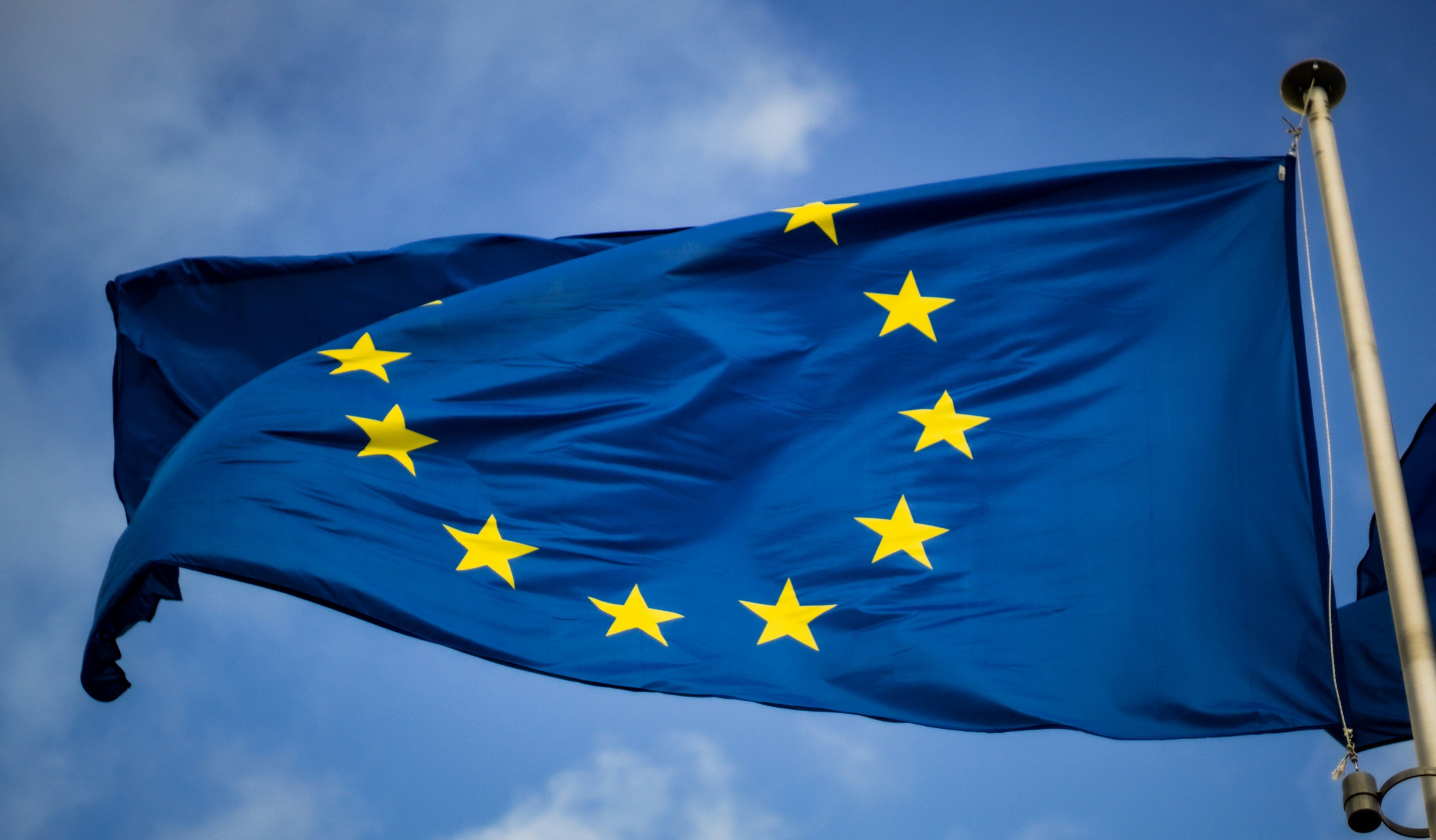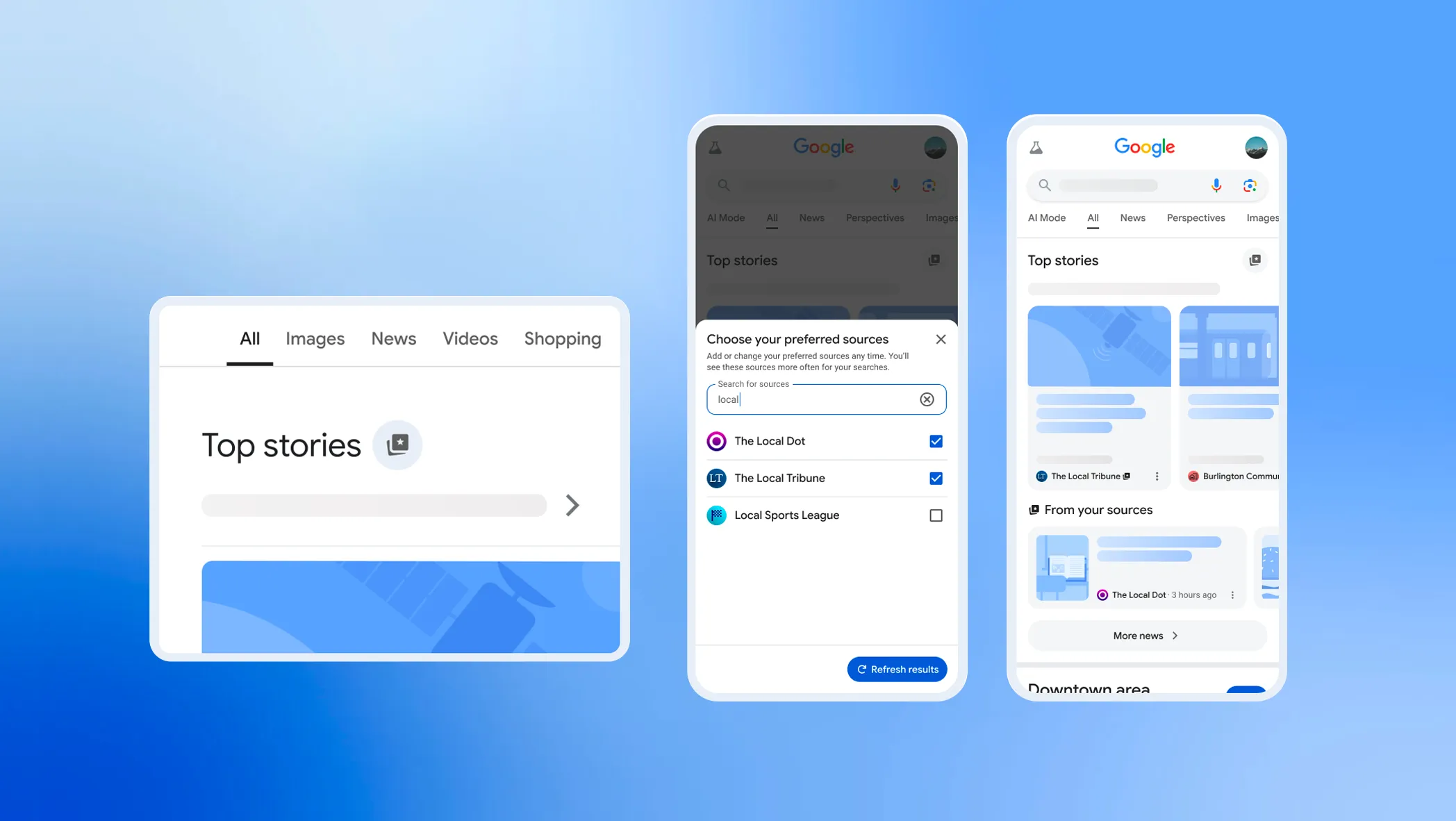/
SEO
/
0 min read
Search Engine Recap - August 2025
Here’s your monthly recap of the biggest search engine updates, helping you stay ahead with your SEO strategy. Welcome to August 2025.
Using structured data and clear snippet content
Avoiding blocking all JavaScript or hiding content from crawlers
Providing user prompts that indicate the presence of a paywall
Google’s spam update targeted low-quality content and shady SEO tactics - reminding businesses to stay aligned with Google’s best practices.
Google continues to enhance its AI toolkit, including Gemini’s image editing and the expanding AI Mode in Search.
New guidance around structured data, paywalls, and image SEO shows that technical excellence still plays a major role.
Meanwhile, European search engines like Ecosia and Qwant are pushing for more independence - an interesting space to keep an eye on.
August delivered several key updates across the search landscape - from Google’s latest spam update and major improvements to its AI tools, to new developments among European search engines. Here is an overview.
Google Rolls Out Its August 2025 Spam Update
Google began rolling out its August 2025 Spam Update at the end of the month, aiming to enhance search result quality by targeting spammy content and manipulative SEO tactics.
The update improves detection of low-quality pages and automatically downgrades them in the rankings. It impacts all website types globally, including e-commerce, blogs, and news sites.

Google stresses that the update is part of its ongoing effort to ensure trustworthy results. Businesses may see temporary fluctuations in rankings over the next two weeks as the update completes.
The message is clear: stick to the guidelines. Avoid low-effort AI content, unnatural link building, or other quick fixes. Focus instead on genuine, high-quality content that serves the user.
Gemini Strengthens Its Image Editing Model
Google has released a significant update to its Gemini AI image editing model, giving users more advanced creative tools.

The updated model supports precise edits like object removal, background changes, and style adjustments, while maintaining high visual quality.
Integrated with Google’s broader AI toolkit, the model allows users to create and refine images using natural language prompts.
Google highlights that ethical safeguards are in place to prevent misuse - such as the generation of violent or misleading visuals.
Early tests show impressive realism and flexibility, making Gemini’s image editing a powerful player in the generative AI space.
AI Mode Expands Globally with New Features
Google has expanded its AI Mode in Search, now active in over 180 countries, including more personalized and assistive functionality.
AI Mode provides conversational responses and actionable suggestions tailored to user preferences - ideal for answering complex queries more efficiently.

Google emphasizes privacy-first design and responsible data use. The feature also integrates with other Google services, supporting a seamless workflow.
More Links Coming to AI Mode Results
In a promising development, Google is testing the inclusion of more links in AI Mode to improve transparency and access to original sources.
Currently, AI-generated results often include just a handful of links. The expansion aims to help users verify information and explore content beyond the summary.
For businesses, this could mean a boost in referral traffic - especially if more URLs are shown alongside AI answers.
This experiment is ongoing and may evolve based on user feedback and performance.
Ecosia and Qwant Strengthen European Search Infrastructure
European search engines Ecosia and Qwant have launched a new, regionally focused search infrastructure aimed at reducing dependence on U.S. tech giants.
The initiative prioritizes data privacy, performance, and compliance with EU regulations.

Ecosia maintains its environmental model - funding tree planting with ad revenue - while also improving indexing, speed, and local relevance.
This move reflects growing European interest in digital sovereignty and could, over time, shake up the global search engine landscape.
Google Confirms: Unique Landing Pages for Images Improve Visibility
Google has confirmed that unique landing pages for images can improve both visibility and ranking in image search.
Rather than hosting visuals on generic pages, Google recommends adding descriptive text, captions, metadata, and structured data to enhance discoverability.
This tactic is especially beneficial for e-commerce sites, blogs, and visual-heavy content, where image search plays a vital role in traffic generation.
Google: AI-Generated Content Should Be Human-Reviewed
Google has reaffirmed that AI-generated content must be reviewed by humans to ensure quality, accuracy, and compliance with search guidelines.
While AI can speed up content production, it can’t replace human judgment - especially when it comes to factual integrity and tone.
Businesses relying solely on AI risk visibility issues. The most effective approach is to combine AI efficiency with human editing and verification.
Top Stories Now Highlights ‘Preferred Sources’
In Google’s Top Stories carousel, users will now see preferred sources highlighted - part of an effort to surface trusted, high-quality news content.

Sites recognized as authorities in specific topics can benefit from increased visibility, though inclusion is not guaranteed.
The move aims to reduce misinformation and boost user confidence, encouraging consistent and reliable reporting from publishers.
New Guidelines for JavaScript-Based Paywalls
Google has updated its guidance on JavaScript paywalls, clarifying how they affect SEO and how to manage content behind paywalls without harming visibility.
Properly implemented, JavaScript-based paywalls can still be crawled and indexed.

Key recommendations include:
When done correctly, paywalled content can still appear in search - while preserving monetization strategies.
Takeaways and Recommendations
August brought several noteworthy developments across the search ecosystem:
If you want help understanding how these updates impact your business, reach out to Bonzer. As a specialized SEO agency, we help ambitious companies climb to the top of search - both traditional and AI-driven.

CPO & Partner
Thomas is the CPO (Chief Product Officer) and Partner at Bonzer, which means his day-to-day focus lies in constantly analyzing Google's algorithm and developing SEO as a product. Thomas has worked with SEO for several years with a strong passion for sharing his knowledge on how businesses can best implement SEO into their operations. In addition to Bonzer, Thomas contributes his expertise to readers at publications like Search Engine Journal, DanDomain, and Detailfolk. He also teaches Digital Media Strategy at Copenhagen Business School and SEO at DMJX in Copenhagen. If you have any questions or requests regarding the SEO universe, feel free to contact him at [email protected].

Let us show you an SEO strategy that can take you to the next level
A brief meeting, where we review your position in the market and present the opportunities.
Let us show you an SEO strategy that can take you to the next level
A brief meeting, where we review your position in the market and present the opportunities.